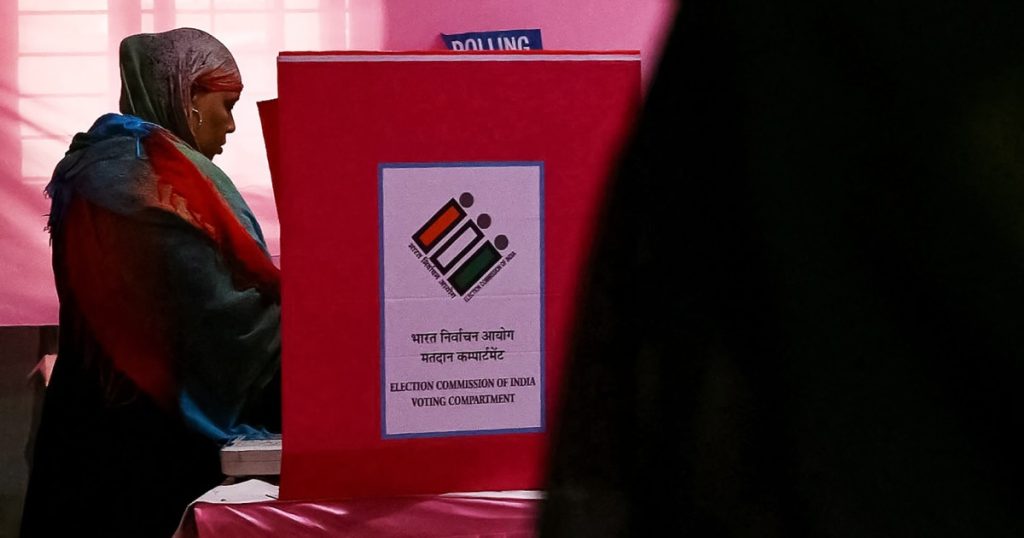As India approaches the conclusion of the world’s largest election, extreme heat is affecting voter turnout. In New Delhi, temperatures reached as high as 113 degrees Fahrenheit during the sixth phase of voting, discouraging voters from participating. The Election Commission of India reported a low voter turnout of 57.67%, down from previous elections. The upcoming results, expected to be announced on June 4, seem to be favoring current Prime Minister Narendra Modi and his Bharatiya Janata Party for a third consecutive term.
The scorching heat in New Delhi and other parts of India has led to concerns regarding the impact on the election process. Campaigns have adjusted their schedules to operate in the cooler mornings and evenings, while voters have been advised to take precautions against the extreme conditions. The high temperatures have led to instances of fainting among candidates and election officials. Experts warn that the heat may not only reduce voter turnout but also influence voting behaviors, particularly in rural areas where agriculture is a significant part of the economy.
Amid the oppressive heat, voters are making an effort to cast their ballots, recognizing the importance of participating in the democratic process. Some voters arrived early in the morning to avoid the worst of the heat, while others utilized umbrellas and sunglasses to protect themselves from the sun. Election officials at polling stations have taken measures to provide relief, such as setting up water dispensers, first aid stations, and cooling equipment. Despite the challenging conditions, voters like Ram Swaroop Verma expressed determination to exercise their right to vote.
In an attempt to encourage voter participation, Delhi declared a public holiday on election day, resulting in empty streets as residents stayed indoors. Even street vendors offering cold treats like ice cream and coconut juice were scarce, with many opting to take the day off due to the intense heat. Despite the discomfort caused by the extreme temperatures, some vendors continued to work, albeit facing challenges like running out of ice quickly. Through these difficult circumstances, voters like Sashi emphasized the importance of voting as a civic duty that must be fulfilled every five years, regardless of external conditions.
As India navigates the final stages of its massive election, the impact of extreme heat on voter turnout remains a significant concern. The current government’s ability to address climate-related issues and alleviate the effects of heat waves may influence voters’ decisions at the polls. While the election commission and campaigns have taken steps to mitigate the effects of high temperatures, the challenge of engaging voters in such conditions persists. As results are anticipated in the coming weeks, the lasting effects of the extreme heat on the election process and outcomes remain to be seen.


